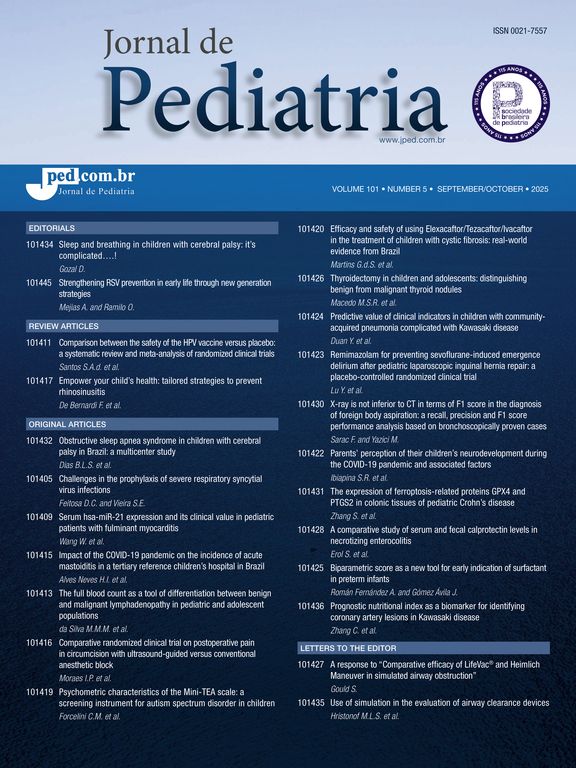To investigate the risk factors and incidence of perioperative adverse effects from unsupplemented spinal anesthesia in preterm infants. Times to resumption of oral feeding and to home discharge were also evaluated.
MethodsPerioperative data were collected prospectively for all preterm and former preterm infants who underwent inguinal hernia repair with spinal anesthesia at a tertiary medical center.
ResultsThe study group consisted of 144 infants with a median gestational age of 30 weeks, postmenstrual age of 37 weeks, birth weight of 1,420 g, and weight at surgery of 2,140 g. Overall, six (4.2%) infants had intraoperative complications, which included apnea (2/1.4%), bradycardia (2/1.4%), and hypoxemia (4/2.8%). Postoperative complications occurred in 15 (10.4%) infants, mainly hypoxemia (3/2.1%), bradycardia (8/5.5%), and apnea (6/4.1%). Predictive factors of an unfavorable outcome (apnea, resumption of oral feeding > 6 h postoperatively, or discharge > 30 h postoperatively) were bronchopulmonary dysplasia (odds ratio [OR] = 3.2, 95% confidence interval [95%CI] 2.8-5.3; p = 0.01) and periventricular leukomalacia (OR = 2.8, 95%CI 2.1-4.9; p = 0.03).
ConclusionsSpinal anesthesia is safe and effective for inguinal hernia repair in preterm infants, with early resumption of oral feeding and short hospitalization. Bronchopulmonary dysplasia and periventricular leukomalacia may pose risks for an unfavorable outcome.
Investigar os fatores de risco e a incidência de efeitos adversos perioperatórios advindos da raquianestesia não suplementada em recém-nascidos pré-termo. Também foi avaliado o tempo decorrido até o reinício da alimentação oral e até a alta hospitalar.
MétodosForam coletados prospectivamente os dados perioperatórios de todos os recém-nascidos prematuros e ex-prematuros submetidos a herniorrafia inguinal com raquianestesia em um centro médico terciário.
ResultadosO grupo de estudo consistiu em 144 recém-nascidos com uma idade gestacional mediana de 30 semanas, idade concepcional de 37 semanas, peso de nascimento de 1.420 g, e peso de 2.140 g no momento da cirurgia. No total, seis (4,2%) recém-nascidos apresentaram complicações intraoperatórias, que incluíram apneia (2/1,4%), bradicardia (2/1,4%) e hipoxemia (4/2,8%). Complicações pós-operatórias ocorreram em 15 (10,4%) recém-nascidos, principalmente hipoxemia (3/2,1%), bradicardia (8/5,5%) e apneia (6/4,1%). Os fatores preditivos de desfecho desfavorável (apneia, alimentação oral > 6 h de pós-operatório, ou alta > 30 h de pós-operatório) foram displasia broncopulmonar [razão de chances (OR) = 3,2, intervalo de confiança de 95% (IC95%) 2,8-5,3; p = 0,01] e leucomalácia periventricular (OR = 2,8, IC95% 2,1-4,9; p = 0,03).
ConclusõesA raquianestesia é segura e eficaz na herniorrafia inguinal em recém-nascidos pré-termo, levando a um reinício precoce da alimentação oral e a um menor período de hospitalização. Displasia broncopulmonar e leucomalácia periventricular podem acarretar risco de desfecho desfavorável.








